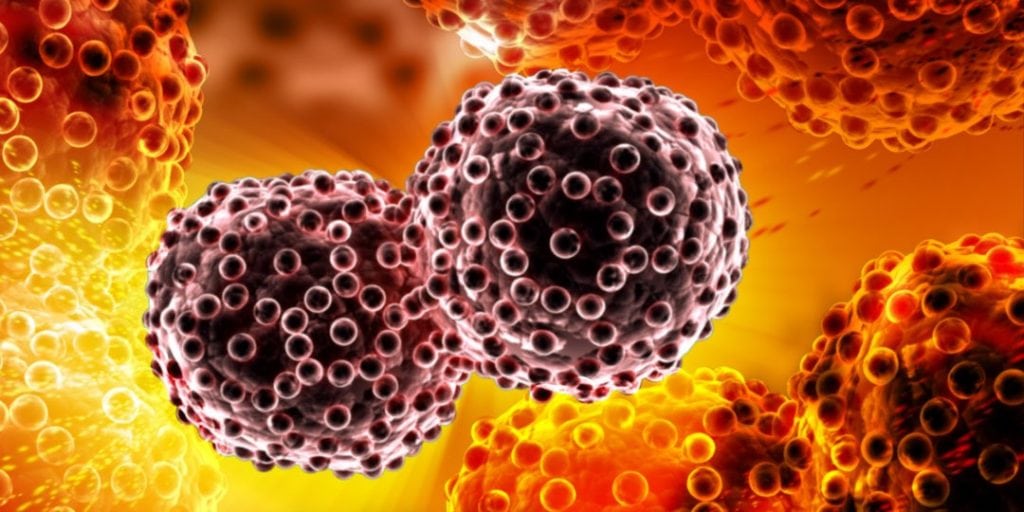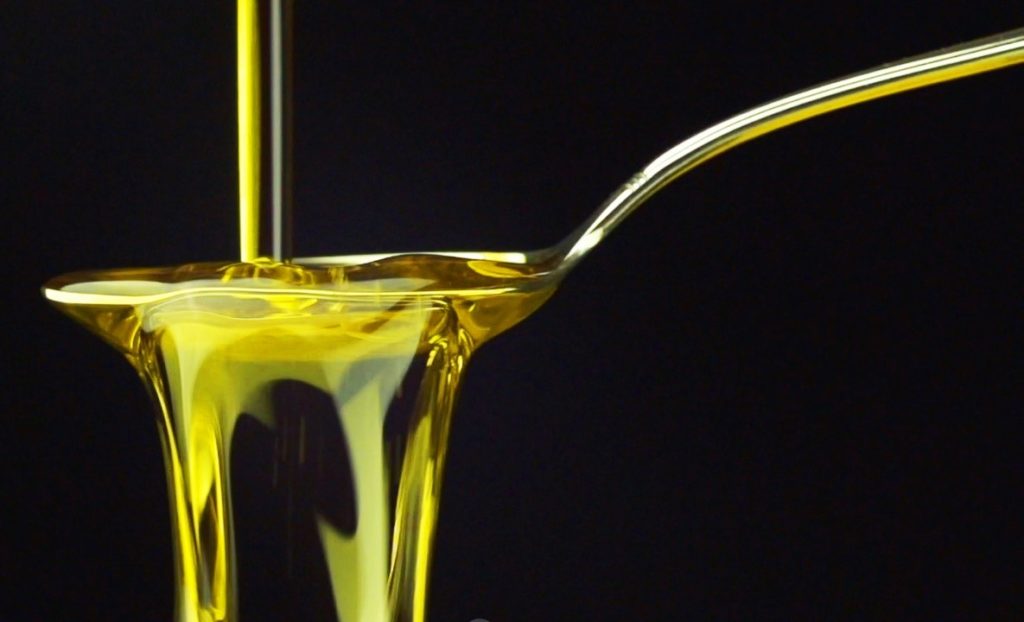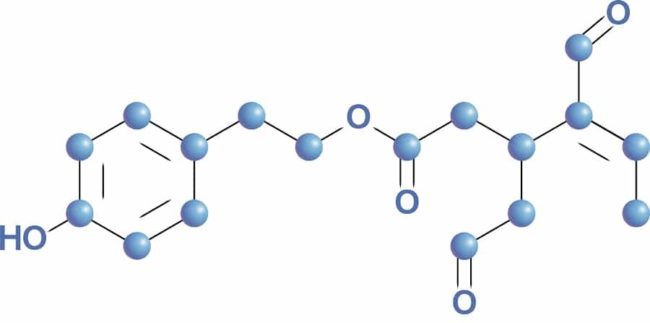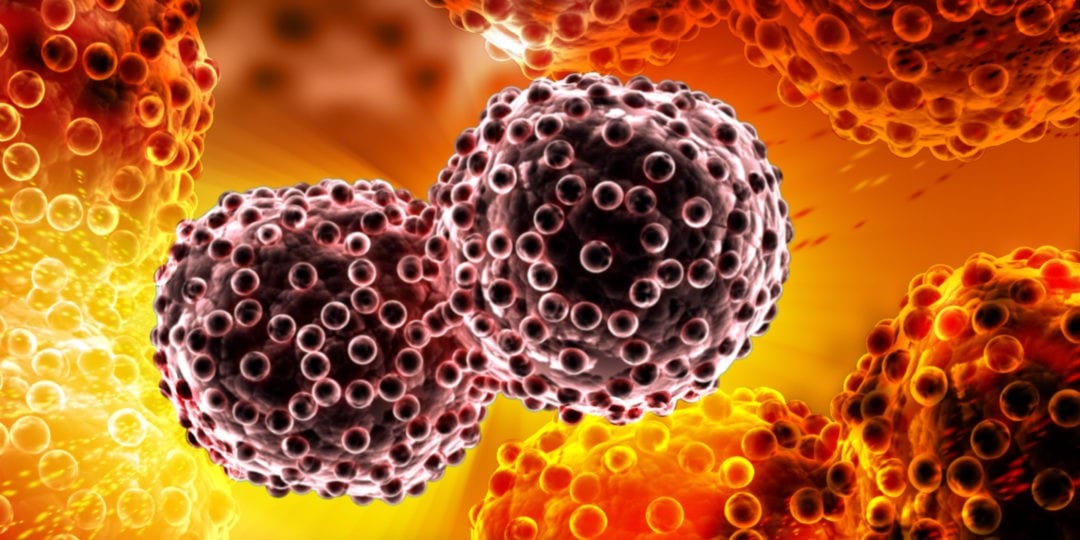How Olive Oil Packed Mediterranean Diet May Reduce Prostate Cancer Risk
Updated March 13th 2023

Summary
- Research studies are providing better and better documentation for the anti-cancer benefits of Extra Virgin Olive Oil.
- As few as 1–2 tablespoons of Extra Virgin Olive Oil per day have been associated with decreased risk of breast, respiratory tract, and digestive tract cancers.
- The overall phenolic content of Extra Virgin Olive Oil has been associated with a decreased ability of cancer cells to regenerate.
- Morocco Gold extra virgin olive oil is high in polyphenols, including Oleuropein, Tyrosol and Hydroxytyrosol. These have been identified as having the most significant effect on cancerous cells.
Contents
- New Study Links Mediterranean Diet With Reduced Prostate Cancer Risk
- Extra Virgin Olive Oil And Reduced Cancer Risk
- Polyphenol Oleocanthal In Extra Virgin Olive Oil
- The Science Behind Olive Oil And Reduced Cancer Risk
- Role Of Olive Oil In Reducing Oxidative Stress
- How Can Extra Virgin Olive Oil Help Combat Cancer
- Morocco Gold Extra Virgin Olive Oil Is High In Polyphenols
- Oleocanthal Induces LMP And Cathepsin Leakage In Cancer Cells.
Men who follow a Mediterranean Diet or Asian Diet, rich in fresh fruit and vegetables are less likely to be diagnosed with prostate cancer, according to new research.
The study, published by Cancers heaps further evidence on the health benefits of a Mediterranean Diet, which relies heavily on quality extra virgin olive oil as its primary source of healthy fat.
As reported in Breakinglatestnews.com, researchers the University of South Australia compared the concentrations of micronutrients in the plasma of prostate cancer patients with those of a control group, finding low levels of lutein, lycopene, alpha-carotene and selenium and high levels of iron, sulfur compounds and calcium in patients with prostate cancer.
Key Mediterranean Foods To Help Prevent Prostate Cancer

Morocco Fruit and Vegetable Market
In particular, men with plasma lycopene concentrations below 0.25 µg/mL and/or below 120 µg/mL of selenium had an increased risk of prostate cancer and are probably more sensitive to the harmful effects of radiation. Among the foods rich in lycopene we find tomatoes, melons, papayas, grapes, peaches and watermelons, while among the foods rich in selenium there are meat, fish, eggs and peanuts. Finally, according to the authors, consuming foods rich in these compounds is preferable to taking supplements.
Extra Virgin Olive Oil And Reduced Cancer Risk
Are you looking to reduce your risk of cancer with dietary changes? Look no further: the answer may lie in the delicious aroma and flavor of extra virgin olive oil. It has been a staple of Mediterranean diets for centuries, but its healing benefits have become well-documented only recently – many studies are now showing that its polyphenol content can protect from different kinds of cancer.
The findings follow numerous research studies which document the anti-cancer benefits of Extra Virgin Olive Oil, another staple in the Mediterranean Diet.
The powerful health benefits of polyphenols in extra virgin olive oil has been recognised in a top six hit list of foods that help minimise the risk of cancer.
The presence of Oleocanthal in extra virgin olive oil gives it top billing in a handy new guide from eastmojo.com which outlines key foods that reduce cancer risk. It says:
Extra Virgin Olive Oil contains a powerful compound called Oleocanthal, which aids in the killing of cancer cells in the body without harming healthy cells. Because of its numerous health advantages, this potent healthy oil is a staple of the Mediterranean Diet. It can easily be used as cooking oil or as a salad dressing.
Polyphenol Oleocanthal In Extra Virgin Olive Oil
The importance and uniqueness of Oleocanthal in extra virgin olive oil is that it has strong antioxidant and anti-inflammatory properties. Its anti-inflammatory action on the body is very similar to ibuprofen, one of the non-steroidal anti-inflammatory drugs most widely consumed.
Non-steroidal anti-inflammatory drugs (NSAIDS) such as aspirin, paracetamol, and ibuprofen, can be differentiated from steroids because they have far fewer secondary effects. NSAIDS have proven to have very beneficial effects in diseases that involve chronic inflammation processes, such as degenerative and neurodegenerative illnesses (Alzheimer).
Extra Virgin Olive Oil sits alongside five other healthy boosting foods: green tea, tomatoes, onions & garlic, dark green vegetables and turmeric which should be incorporated in to our diet to boost chances of cancer prevention.
The Science Behind Olive Oil And Reduced Cancer Risk
Research studies are providing better and better documentation for the anti-cancer benefits of Extra Virgin Olive Oil. Early studies in this area were largely limited to research using rats and mice or research on cell cultures in the lab. But more recent studies have looked at people incorporating Extra Virgin Olive Oil into their everyday meal plan and have found encouraging results.
As few as 1–2 tablespoons of Extra Virgin Olive Oil per day have been associated with decreased risk of breast, respiratory tract, and digestive tract cancers. In the case of the digestive tract, reduced risk seems more likely in the upper tract (stomach and small intestine) than in the lower digestive tract (large intestine, including the colon).
Scientists have looked at several different mechanisms that might allow Extra Virgin Olive Oil to provide these anti-cancer effects. One group of studies have focused on the secoiridoids, oleuropein and decarboxylmethyl oleuropein, and determined that these Extra Virgin Olive Oil phytonutrients help shift some of our metabolic pathways in the direction of better stress resistance. In addition, the overall phenolic content of Extra Virgin Olive Oil has been associated with a decreased ability of cancer cells to regenerate. At least some of this effect involves the ability of two phenols in Extra Virgin Olive Oil—tyrosol and hydroxytyrosol—to block activity of an enzyme called matrix metalloproteinase 2 (MM-2).
Role Of Olive Oil In Reducing Oxidative Stress
The multiplication of cancer cells depends on an adequate supply of oxygen, and in order to obtain this supply of oxygen, cancer cell growth is often accompanied by the formation of new blood vessels (through a process called angiogenesis). Because the activity of MM-2 is needed to trigger this process of new blood vessel formation, substances that block MM-2 activity can also lessen the likelihood of new blood vessel formation. The tyrosol and hydroxytyrosol in Extra Virgin Olive Oil may decrease the likelihood of cancer cell regeneration by interfering with angiogenesis and lowering the supply of oxygen that would otherwise be available for new blood vessel formation.
How Can Extra Virgin Olive Oil Help Combat Cancer

Extra Virgin Olive Oil is probably the most extensively researched foodstuff on the planet and the health benefits are evidence based. Thanks to the recent spotlight on the Mediterranean Diet, extensive research has been done on the composition of best olive oil. What has been discovered is an extensive list of phytonutrients; one of the most praised is its polyphenols.
Beneficial effects of natural plant polyphenols on the human body have been evaluated in a number of scientific research projects. Bioactive polyphenols are natural compounds of various chemical structures. Their sources are mostly fruits, vegetables, nuts and seeds, roots, bark, leaves of different plants, herbs, whole grain products, processed foods (dark chocolate), as well as tea, coffee, and red wine. Polyphenols are believed to reduce morbidity and/or slow down the development of cardiovascular and neurodegenerative diseases as well as cancer. Biological activity of polyphenols is strongly related to their antioxidant properties. They tend to reduce the pool of reactive oxygen species as well as to neutralize potentially carcinogenic metabolites. A broad spectrum of health-promoting properties of plant polyphenols comprises antioxidant, anti-inflammatory, anti-allergic, anti-atherogenic, anti-thrombotic, and anti-mutagenic effects. Scientific studies present the ability of polyphenols to modulate the human immune system by affecting the proliferation of white blood cells, and also the production of cytokines or other factors that participate in the immunological defense. The aim of the review is to focus on polyphenols of olive oil in context of their biological activities.
Keywords: olive oil, Olea europea, polyphenols, oleuropein, hydroxytyrosol, anticancer therapy
Polyphenols have been shown to reduce morbidity and/or slow down the progression of cardiovascular, neurodegenerative, and cancer diseases. The mechanism of action of polyphenols strongly relates to their antioxidant activity. Polyphenols are known to decrease the level of reactive oxygen species in the human body. In addition, health-promoting properties of plant polyphenols comprise anti-inflammatory, anti-allergic, anti-atherogenic, anti-thrombotic, and anti-mutagenic effects. There is a body of research demonstrating their ability to modulate the human immune system by affecting the proliferation and activity of white blood cells, as well as the production of cytokines or other factors that participate in immunological defence.
Morocco Gold Extra Virgin Olive Oil Is High In Polyphenols
Our latset harvest has produced a low acidity level of 0.2% together with the highest level of polyphenols yet seen in our extra virgin olive oil. This includes the key polyphenols identified as having the most significant effect on cancerous cells, Oleuropein, Hydroxytyrosol and Tyrosol.
| 3,4 DHPEA-EDA | 85 mg/kg |
| Hydroxytyrosol | 5 mg/kg |
| Lignanes | 26 mg/kg |
| Ligstroside aglycone (p, HPEA-EA) | 20 mg/kg |
| Oleuropein aglycone (3,4 DHPEA-EA) | 71 mg/kg |
| Oleocanthal p, HPEA-EDA | 65 mg/kg |
| Tyrosol | 372 mg/kg |
| Polyphenols Total | 644 mg/kg |
Investigating Polyphenolic Compounds In Extra Virgin Olive Oil
Many studies have identified the components of extra virgin olive oil which confer health benefits, but few have tested the effect of high phenolic extra virgin olive oil on cancer.
Dr Limor Goren, Hunter College of the City University of New York and Dr David Foster, has recently carried out research to explore the anti-cancer effects of oleocanthal, a phenolic compound found in extra virgin olive oil. Oleocanthal is the molecule thought to be responsible for the ‘peppery’ sensation at the back of your throat when you take certain extra virgin olive oils. In fact, this is how the molecule got its name, ’oleo’ means oil and ‘canth’ is Greek for stinging or prickly.
The study has shown that oleocanthal specifically kills human cancer cells, but not normal, non-cancerous cells. The authors suggest that this is due to the ability of oleocanthal to induce the death of cancer cells through lysosomal membrane permeabilisation (LMP). Permeabilising the lysosomal membrane allows digestive enzymes stored inside this organelle to be released, which preferentially causes cell death in cancer cells. In their latest study, they found that oleocanthal was able to induce LMP in cancer cells grown in the laboratory. The team tested whether the observed damage to lysozymes was actually due to permeation of the membrane, or whether something else could have damaged them. Interestingly, purified lysosomes outside the cell were not affected by oleocanthal, indicating that oleocanthal only induces lysosomal permeability in a cellular context.
One limitation identified by Dr Goren is that this work used purified oleocanthal, therefore it is not known whether oleocanthal in a more natural form, i.e. as a component of olive oil, can cause a similar outcome. To overcome this, the group carried out a similar experiment using olive oil enriched cell culture media and found similar results.

Furthermore, recognising that different olive oils have different oleocanthal concentrations due to their origin, harvest time, and processing methods, the researchers tested a variety of olive oils to determine their respective concentrations of oleocanthal, which ranged from very low to very high. The olive oils that had high oleocanthal content completely killed cancer cells in vitro (in a petri dish), in a manner similar to purified oleocanthal. The olive oils with average oleocanthal content reduced viability, but to a lesser extent. Those with no oleocanthal had no effect on cell viability.
Oleocanthal extends life span of mice with tumours
In addition to the findings in cancer cells discussed above, Dr Goren and colleagues also found that injection of oleocanthal into mice engineered to develop pancreatic neuroendocrine tumours, reduced their tumour burden and extended the lifespan of the mice. More specifically, the oleocanthal injections extended the lives of the mice by an average of four weeks. Based on lifespan conversion, if oleocanthal has the same effect in humans, it might extend human life by more than 10 years.
Oleocanthal induces LMP and cathepsin leakage in cancer cells.
A separate study, which was conducted by scientists from Weill Cornell Medicine, Rutgers University, and Albert Einstein College of Medicine in addition to Hunter College, supports the findings of how oleocanthal kills cancer cells. As mentioned previously, oleocanthal induces damage to cancer cells’ lysosomes, cell components that contain enzymes used to break down larger molecules like proteins. The oleocanthal degrades the integrity of the lysosomal membrane, releasing the enzymes into the cells’ cytoplasm, which leads to cell death. Cancer cells often have larger and more numerous lysosomes, making them more vulnerable to oleocanthal than other cells. Furthermore, many cancer cells upregulate the formation and turnover of lysosomes and their enzymatic contents.
Extra virgin olive oil is a tried and tested natural remedy for many ailments but in order to potentially harness its benefits for cancer treatment more needs to be understood about the type of olive oil, and the dose required in humans. In addition, this study shows that it is not just any olive oil that is important, but the high concentration of phenolic compounds of the selected oil that is crucial.

